Breaking
- MENU
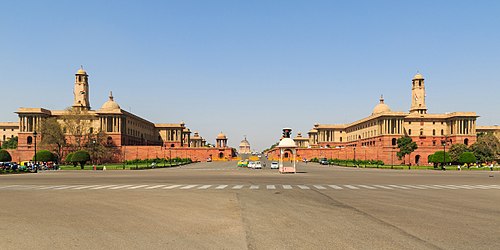
BILATERAL ISSUES
IRAN
Government of India strengthens cargo handling capacity of Chabahar Port, Iran, New Delhi, 18 January 2021.
India has supplied a consignment of two Mobile Harbour Cranes (MHC) to Iran’s Chabahar port, with a total contract value of over USD 25 Million under a contract agreement for supply of 6 MHC. The consignment of cranes arrived from Marghera port, Italy has been unloaded successfully on 18th January, 2021 at Chabahar port and presently undergoing trials run.
With 140 metric tons lifting capacity, multipurpose equipment and accessories like Mobile Harbour Cranes (MHC) will enable India Ports Global Limited (IPGL) to provide seamless services for Container, Bulk and General Cargo at Shahid Beheshti Port of Chabahar.
This is a step towards India’s commitment towards infrastructure development of Shahid Beheshti Port of Chabahar.
The bilateral contract between the Islamic Republic of Iran and Republic of India was signed on 23rd May 2016 with a total value of USD 85 million for Equipping, Mechanizing and starting Operations at Shahid Beheshti Port of Chabahar development Phase- I. To achieve this ambitious aim, an SPV namely India Ports Global Limited (IPGL) Mumbai was incorporated under the ambit of the Ministry of Ports, Shipping and Waterways.
Minister of Ports, Shipping and Waterways (I/C), Shri Mansukh Mandaviya stated that Chabahar Port is a strategic port with great national importance. The delivery of consignment of heavy equipment, including cranes shows India’s commitment to the strategic connectivity of Chabahar port project that will provide access to markets in Central Asia. Development of Chabahar port is the anchor for the expansion of economic and mutual relations between India and Iran and it will give a further boost to the maritime trade between both the countries.
The location of Chabahar Port has strategically advantage and high potential to provide connectivity among India, Iran, Afghanistan, Uzbekistan and other CIS countries especially Eastern CIS countries to increase trade between these countries. Source: Press Information Bureau (PIB).
OMAN
India-Oman Strategic Consultative Group (IOSCG) Meeting, New Delhi, 14 January 2021.
A meeting of the India-Oman Strategic Consultative Group (IOSCG) was held physically in New Delhi today. The Indian delegation was led by Shri Sanjay Bhattacharya, Secretary (CPV&OIA), MEA while the Omani delegation was led by H.E. Sheikh Khalifa bin Ali al-Harthy, Undersecretary for Diplomatic Affairs, Foreign Ministry. This was the first high-level official visit from Oman to India since the onset of Covid-19.
Both sides expressed satisfaction that despite the Covid-19 pandemic both sides have kept in close touch and sustained momentum in further consolidation of their strategic relationship. Secretary (CPV&OIA) thanked the Omani side for taking excellent care of the large Indian community in Oman during the pandemic. Both sides also expressed happiness that the Air Bubble arrangement between the two countries is functioning well. The Omani side expressed appreciation that India had facilitated food and medical supplies to Oman during the pandemic. India assured assistance to Oman in its requirement for Covid-19 vaccines.
During the IOSCG both sides reviewed the entire spectrum of India-Oman relationship including in political, energy, trade, investment, defence, security, space, mining, S&T, culture and consular fields. It was agreed that the two sides will pursue various agreements and MOUs in these areas for a future-oriented relationship. They looked forward to trade and investment linkages regaining momentum once normalcy returns after Covid-19. They also discussed intensifying cooperation in the areas of health and food security. The two sides also exchanged views on recent regional developments as well as global issues of mutual interest.
External Affairs Minister Dr. S. Jaishankar also received the Omani Undersecretary today. External Affairs Minister conveyed congratulations to the Omani side on the first anniversary of the reign of His Majesty Sultan Haitham bin Tariq. He reiterated the invitation from Prime Minister to His Majesty for a visit to India. He also looked forward to the continuous strengthening of India-Oman strategic partnership in various fields.
Sheikh Khalifa will be paying a visit to Sushma Swaraj Institute for Foreign Service tomorrow. Source: Embassy of India, Muscat.
TURKEY
Statement by Secretary(East) at 17th Ministerial meeting of Asia Cooperation Dialogue, Ankara, 21 January 2021.
Mr. Chairman, Excellencies,
It is a privilege to speak at this 17th ACD Ministerial meeting which has aptly chosen the theme "New normal and safe and healthy tourism."
The unprecedented challenge posed by the Covid-19 pandemic has severely tested the resilience of all nations and has brought out the indivisible aspect of human existence, calling for a coordinated response that goes well beyond national boundaries. Strong multilateral cooperation is critical in our collective fight against the pandemic as also for a global economic recovery.
Though it is difficult to visualize a new normal, Asia, the birthplace of major religions and civilizations of the world, which can proudly lay claim to natural connectivity due to historical & civilizational links, is taking this challenge head on. In the ‘new normal’, while we work to revive old businesses to bring back livelihoods, we must also focus on innovation and complementarities, and explore new business models.
Tourism has suffered significant losses due to the pandemic. It is now a priority for us to revive and rebuild this sector for ensuring jobs as well as for the protection of our cultural and natural heritage. India is focusing on tourism promotion as a part of Three-Ts strategy which includes "Trade, Tourism and Technology”. I am confident that India with its geographical diversity, world heritage sites and niche tourism products like cruises, adventure-sports, eco-tourism and medical would rise to the occasion to achieve full potential of tourism industry.
Currently, our focus is on vaccines and rapid testing, so essential for travel normalcy. At this time, we need to strengthen our efforts aimed at the development of equitable and universal access to diagnostic tools, treatments and vaccines in order to promote safe and healthy tourism. India stands ready to collaborate with our partners in the international community towards achieving this goal. We have already supplied Covid related assistance to over 150 countries. Beginning January 20th, vaccines from India have started reaching our neighbourhood under grant assistance to Bhutan, Maldives, Nepal, Bangladesh, Myanmar and Seychelles, reflecting India’s commitment to use its vaccine production and delivery capacity to help all of humanity to fight the COVID19 pandemic.
Excellencies, the multiple challenges ranging from the pandemic to terrorism, cybercrimes and conflicts over resources and territory, call on us to be more pro-actively engaged with each other to ensure peace, stability and prosperity in the region. Even amidst the ongoing pandemic, terrorism continues to pose a critical threat. We must cooperate to eliminate terrorism in all its forms, for terrorists do not believe in a nation, state or nationalism. Another area where we can gain from multi-faceted cooperation to address common challenges is the Indo-Pacific region with ASEAN at its centre. The Indo-Pacific Oceans Initiative (IPOI) announced by Prime Minister Narendra Modi in 2019 calls for a free, open, inclusive and a rules-based Indo-Pacific region, which promotes Security and Growth for All in the Region (SAGAR).
As the world’s most dynamic and economically-vibrant region, Asia has the potential to serve as a growth engine for the rest of the world and contribute to global economic recovery in the post-pandemic scenario. In addition, there are deep cultural connections, like the common thread of Buddhism, which can be further reinforced to enhance connectivity in the region.
India has undertaken a number of initiatives to promote connectivity in Asia like the India-Myanmar-Thailand Trilateral Highway and its further extension to Cambodia, Laos and Viet Nam. Through initiatives like the International Solar Alliance (ISA) and the Coalition for Disaster Resilient Infrastructure (CDRI), we hope to bring positive global climate action as well as make infrastructure disaster resilient. In addition, India has extended development assistance worth US$ 15.9 billion to Asian countries, covering transport, power generation and distribution, agriculture, manufacturing industries, health-care, education and capacity building.
In conclusion, I would like to thank the Government of Turkey for steering the work of the Asia Cooperation Dialogue (ACD) as the Chair and for hosting the 17th ACD Ministerial Meeting.
Thank you. Source: Ministry of External Affairs (MEA).
UAE
Visit of Minister of State for External Affairs and Parliamentary Affairs Shri V. Muraleedharan to UAE (January 19-21, 2021), New Delhi, 18 January 2021.
Shri V. Muraleedharan, Minister of State for External Affairs and Parliamentary Affairs will be undertaking an official visit to UAE from January 19-21, 2021.
During the visit he will be meeting with UAE dignitaries and a broad cross-section of the Indian community in UAE. He will hold talks with the UAE side on various bilateral and international issues of mutual interest. There will be special focus in the visit on issues related to the Indian community, especially the welfare of Indian workers.
India and UAE have maintained close coordination in the spirit of their comprehensive strategic partnership during the Covid-19 pandemic. External Affairs Minister had also paid a visit to UAE in November 2020. An air bubble arrangement has been functioning successfully between both countries. Source: Ministry of External Affairs (MEA).
Prime Minister Shri Narendra Modi speaks to His Highness Sheikh Mohammed Bin Zayed Al Nahyan, Crown Prince of Abu Dhabi & Deputy Supreme Commander of the UAE Armed Forces, New Delhi, 28 January 2021.
Prime Minister Shri Narendra Modi spoke on telephone with His Highness Sheikh Mohammed Bin Zayed Al Nahyan, Crown Prince of Abu Dhabi & Deputy Supreme Commander of the UAE Armed Forces.
The two leaders discussed the impact of the COVID pandemic in the region, and expressed satisfaction that cooperation between India and UAE had not halted even during the health crisis.
They agreed to continue close consultations and cooperation to further strengthen the India-UAE partnership in the post COVID world. In this context, they discussed the opportunities for further diversifying trade and investment links.
Prime Minister expressed his special appreciation for the personal attention and care that His Highness has always shown for the well-being of the expatriate Indian community in UAE.
The two leaders shared their confidence that the COVID crisis would soon be overcome, and looked forward to meeting in person in the near future. Source: Ministry of External Affairs (MEA).
PERMANENT MISSION OF INDIA TO UN
UNSC meeting on Syria (Chemical weapons), India Statement, New York, 05 January 2021.
I would like to thank Under Secretary General and High Representative for Disarmament Affairs Izumi Nakamitsu for her briefing.
2.​ India appreciates the commitment of the OPCW Technical Secretariat in performing its responsibilities during these challenging times of the pandemic. We have taken note of the findings mentioned in the two recent reports of the OPCW Fact-Finding Mission in Syria.
3. We have also taken note that OPCW is in the process of analysing the information collected from its most recent deployments for cases related to the alleged use of chemical weapons in Syria. We note with satisfaction that three issues relating to Syria’s initial declaration have been resolved during the last six months.
4. We encourage continued engagement and cooperation between Syria and the OPCW Technical Secretariat towards an early resolution of all outstanding issues. India has provided a financial contribution of US$ one million to the OPCW Trust Fund for activities relating to destruction of chemical stockpiles and related facilities in Syria.
5.​ India attaches high importance to the Chemical Weapons Convention, which is a unique, non-discriminatory disarmament instrument and serves as a model for the elimination of an entire category of weapons of mass destruction. India has been firmly opposed to any use of chemical weapons anywhere, at any time, by anybody, and under any circumstances. We strongly condemn the use of chemical weapons; and there can be no justification for their use.
6.​ With regard to allegations of use of chemical weapons in Syria and investigations conducted in this regard, India has consistently underlined the need for an impartial and objective investigation into any alleged use of chemical weapons, scrupulously following the provisions and procedures laid down in the Convention. Any concerns should be addressed on the basis of consultation among all concerned parties. In our view, politicization of the issue is neither helpful nor productive.
7. Mr. President, India remains concerned about the possibility of such weapons falling into the hands of terrorist organizations and individuals. Terrorist groups have taken advantage of the decade long conflict in Syria to entrench themselves posing a threat to the entire region. The world cannot afford to give these terrorists any sanctuary or dilute its fight against these terrorist groups.
8. India has consistently called for a comprehensive and peaceful resolution of the Syrian conflict through a Syrian-led dialogue, taking into account the legitimate aspirations of the people of Syria. We have also contributed to the return of normalcy and rebuilding of Syria through humanitarian assistance and human resource development.
9. We also remain supportive of both the Geneva and the Astana processes for an expeditious resolution of conflict in Syria.
I thank you, Mr. President. Source: Permanent Mission of India to UN.
Security Council meeting on Yemen (Briefing / Consultations), Remarks by Ambassador T.S. Tirumurti, Permanent Representative of India to the United Nations, New York, 14 January 2021.
Thank you, Mr. President.
Allow me to begin by welcoming H.E Ahmed Awad Bin Mubarak, Foreign Minister of Yemen. I also thank Special Envoy Martin Griffiths, Under-Secretary General Lowcock and Executive Director of World Food Program David Beasley for their briefings.
I convey my heartfelt and sincere condolences to the Government and people of Yemen and the families of those who were killed in the attack at Aden International airport. I also wish a speedy recovery to those who were grievously injured in that heinous attack.
India strongly condemns the attack and views it as a deliberate attempt to undermine the ongoing peace efforts in Yemen. The targeting of the civilian airport and the killing of innocent civilians is unacceptable and cannot be justified for any reason whatsoever. The perpetrators of this heinous act should be held accountable and I urge the international community to support the Government of Yemen in its efforts to do so. We should ensure that terrorists do not take advantage of such situation.
Similar missile attacks within Yemen and across the border into Saudi Arabia have continued unabated in 2020. A strict implementation of the arms embargo envisaged in resolution 2216 and its effective monitoring is necessary to create the conditions for complete elimination of such threats in the future.
We are also saddened by the tragic death of staff members of the International Committee of the Red Cross in the airport attack. These recurring incidents highlight the safety and security issues faced by humanitarian workers in Yemen. India commends the valiant efforts of all humanitarian workers to ensure the delivery of humanitarian assistance to Yemeni people in need, despite the daunting challenges they face.
We also witnessed recently significant achievements in the pursuit of peace in Yemen – the formation of the new cabinet and the security re-deployments in southern Yemen - as envisaged under the Riyadh agreement.
India welcomes these positive steps, which has triggered a wave of hope. We appreciate the role played by Saudi Arabia and others in facilitating these developments. We also commend the new government’s resolve to continue its efforts towards achieving peace and stability in Yemen, despite the recent attacks.
2020 also witnessed an increase in threats arising out of Yemen on commercial ships navigating the Red Sea and the Gulf of Aden. India is deeply worried by this trend, which threatens not only the safe passage of commercial vessels but also maritime security in the region. This issue deserves the Council’s immediate attention and calls for greater deliberation.
We also remain concerned by the uptick in incidents of violence in Hudaydah and Taiz, which has resulted in civilian deaths, especially of women and children. These attacks are a flagrant violation of the ceasefire provisions of the Stockholm Agreement and I urge all parties to fulfil their commitments under the Agreement. The preservation and full implementation of the Stockholm Agreement is even more critical today as there are predictions of a widespread famine in Yemen in 2021. It is extremely important that the Hudaydah Port and the other Red Sea ports remain operational to facilitate humanitarian shipments to Yemen.
The plight of millions of Yemenis facing, inter alia, severe food insecurity as well as children suffering malnourishment are immediate needs which should move the conscience of the world community. India will continue to provide medical and other assistance to those affected by the conflict. It is time we put the people of Yemen at the centre of our efforts in the midst of all other developments.
Mr. President,
India’s relationship with Yemen is centuries old and its cornerstone is our people-people ties. The two countries are connected through the Indian Ocean. In the past, Indian freedom fighters visited Aden to support Yemen’s independence; today Yemeni students come to India to study. There are nearly 300,000 Indians of Yemeni origin living in India and 200,000 Indian origin diaspora in Yemen. A large number of Indians were working in Yemen till 2015 when we were forced to evacuate them. This strong connect with Yemen, makes the instability, violence and suffering in Yemen painful for India and all Indians.
If we are serious about finding a long-term solution to Yemen’s challenges, then the Council should press urgently for a sustainable and comprehensive political settlement of the conflict. I reaffirm India’s steadfast commitment to a Yemeni-led and Yemeni-owned political process with the goal of achieving an inclusive and peacefully negotiated settlement to the conflict. We urge all Yemeni parties to work efforts towards such a settlement.
We take note of Special Envoy Martin’s efforts to initiate dialogue between the Government of Yemen and Ansar Allah. We believe that creating a conducive environment for such talks is also vital. Cessation of violence and other confidence building measures, like prisoner exchanges, can help create such an environment. We encourage all parties to explore these measures.
Mr. President,
Before I conclude, let me also welcome the reconciliation and rapprochement between GCC countries and the signing of the Al-Ula Declaration at the recently concluded GCC Summit in Saudi Arabia. India acknowledges the key role of a unified GCC in promoting peace, stability and prosperity in Yemen. We also look forward to enhancing India’s institutional dialogue and partnership with the GCC in the coming months.
I thank you Mr. President. Source: Permanent Mission of India to UN.
Security Council briefing on ‘Cooperation between the United Nations and regional and sub-regional organizations: League of Arab States’, Remarks by Ambassador T.S. Tirumurti, Permanent Representative of India to the United Nations, New York, 18 January 2021.
Thank you, Mr. President.
I would like to welcome your august presence in the Council. I also welcome Minister of State for Foreign Affairs of UAE H.E Dr Anwar Gargash. I welcome Secretary General of the League of Arab States, HE Ahmed Aboul Gheit and thank him for his insights on this important matter. I thank Under Secretary General Rosemary Dicarlo for her briefing.
The Arab world has been the cradle of civilization and the birthplace of three major religions. Given its strategic location, developments in the Arab world have shaped our common history and continue to have a profound impact globally. The challenges that the region is confronting today, and how we address them collectively, will have a bearing on our collective future.
India and the Arab world share a civilizational relationship and our interaction with the region encompasses every aspect of human endeavour - from agriculture to hi-tech, from clean energy to counterterrorism, and from education to trade and commerce.
For India, peace and stability in West Asia and North Africa is of vital interest. Arab countries are host to around nine million Indians, the largest expat community in the Arab world. Their contributions to the economies of host countries and nation-building efforts are greatly appreciated by both the people and the governments of these countries. Indians from the Arab world remit around $48 billion to India annually.
I would like to take this opportunity to express Government of India’s gratitude for the assistance extended by Arab countries for Vande Bharat Mission, the largest repatriation exercise undertaken by India and probably anywhere in the world during Covid-19 imposed travel restrictions.
Our excellent bilateral relations with the Arab world are also reflected in our institutional engagement under the framework of the Arab-India Cooperation Forum. The third Senior Officials’ Meeting (SOM) of this Forum took place virtually earlier this month, and we look forward to hosting the next meeting in India.
Today’s deliberations provide an opportunity to have a closer look at the challenges facing the region and the ongoing cooperation between the UN and the League of Arab States, under the framework of Chapter VIII of the UN Charter. The League of Arab States has an important role to play in the areas of mediation, conflict prevention and resolution in the region.
The ongoing conflicts in the region go back a decade and have now become protracted in nature, be it Syria, Libya or Yemen. The prolonged instability is affecting not only these countries, but also the larger region. In this context, I would like to make the following observations:
(i) First, at the heart of the conflict are human beings, and unfortunately these conflicts have brought untold misery to millions of people due to unabated violence and displacement, affecting mainly women, children and the elderly. They are facing shortages of food, medical care and basic facilities, including education. The COVID-19 pandemic has further exacerbated this suffering. We, therefore, call on those who are involved in the conflict, both from the region and from outside, to focus first on centrality of the human being and do all they can to alleviate their suffering since they are helpless when warring factions settle their scores and destroy someone else’s lives.
(ii) Second, the purpose of regional and international involvement should be to help countries and their concerned parties in the peaceful resolution of all issues. We need to seriously introspect whether each of our actions is ensuring this reconciliation or whether they are doing a disservice by pulling parties apart. This is for India an important touchstone, since we have always believed in an intra-country-led process and not externally imposed solutions.
(iii) Third, attempts to delegitimize governments and to impose external solutions have moved parties away from negotiations and made them sceptical of the political process. Such an approach emboldens regional players to support respective sides, both politically and militarily. The proxies, propped by their mentors, also aspire for a political role without much support on the ground. This further complicates the pursuit of any meaningful solution.
(iv) Four, the presence of foreign terrorist fighters in countries facing conflicts is posing serious challenges to ongoing international efforts. These fighters have become enablers of attacks carried out by terror groups such as Al Qaeda and ISIS. They are also radicalizing the youth. For example, it is well-known that the foreign terrorist fighters in Libya are radicalizing the entire region. This development is undermining our collective efforts to counter terrorism.
(v) Needless to add, any comprehensive and peaceful resolution to such conflicts must be inclusive, driven by the aspirations of the people and arrived at through broader consultations and dialogue. The role of the international community should be to create an environment for such a process to unfold. The efforts undertaken without due regard for impartiality, fairness and equity will not achieve the goal of a lasting and durable peaceful solution.
Mr. President,
It is in this context, that the relevance of co-operation between UN and the League of Arab States assumes greater significance. The League of Arab States, as a regional organization predating the UN, has contributed positively to international security and stability in the region. Members of the Arab League are among the top troop and police contributing countries. Arab states are also among the largest donors of humanitarian assistance to countries facing armed conflict.
The UN and the League of Arab States have identified areas of cooperation and intensified their dialogue through capacity building and peace-making initiatives, sectoral meetings, and biennial cooperation meetings. The opening of the Liaison Office in Cairo and the practice of annual briefings by the Secretary-General of the Arab League to the Security Council are steps in the right direction. But more can be done to realize the true potential of such collaboration. In this regard, I would like to mention that:
(i) There must be greater policy synergy between the two organizations. Any UN peace initiative in West Asia and North Africa should take into confidence the Arab League and other relevant stakeholders to find common solutions.
(ii) The engagement between the two organizations should also focus more on peacebuilding and development, especially in post-conflict scenarios. The League of Arab States has contributed, both as an organization and through its individual members, towards reconstruction and economic development of not just its members, but also of other UN member states
(iii) Both Organizations should strive to achieve comprehensive coordination at the field level, especially through regular coordination between UN Special Envoys and Special Representatives and the League of Arab States.
(iv) Let me also add that activities should be carried out with utmost respect for the principles of national sovereignty, political independence, unity and territorial integrity of all member states, in line with the provisions of the UN Charter.
Mr. President,
The cooperation between UN and League of Arab States will be incomplete without mentioning its importance in the Middle East Peace Process. Both organizations should make renewed efforts to facilitate the Peace Process. Recent months have witnessed positive developments, including the signing of the Abraham Accords. India has always supported the Palestinian issue and peace and stability in West Asia which is our extended neighbourhood. As such, we welcome these agreements regarding normalization of relations between Israel and other countries, which, we believe will contribute to peace and stability in West Asia.
We also continue to maintain our traditional support for the Palestinian cause. A two-state solution and lasting peace can be achieved only through direct negotiations between the two parties on all final status issues, taking into account the legitimate aspirations of Palestinians for Statehood and Israel’s security concerns. We urge the Israeli and Palestinian leaders to re-engage in meaningful negotiations and to eschew violence that may make negotiations more difficult to resume.
In conclusion, Mr. President, let me reiterate India’s support for closer and meaningful cooperation between the UN and the League of Arab States that will benefit the region immensely. India will continue to partner with the Arab countries in their efforts to achieve peace, stability and prosperity and will work together with the League of Arab States in their pursuit of regional peace and security, in combating terrorism and other challenges and in promoting tolerance and pluralistic traditions.
I thank you Mr. President. Source: Permanent Mission of India to UN
Security Council Briefing / Consultations on Syria [political-humanitarian], Remarks by Ambassador T.S. Tirumurti, Permanent Representative of India to the United Nations, New York, 20 January 2021.
Mr. President,
Let me begin by thanking Special Envoy Gier Pedersen and Under Secretary General Mark Lowcock for their briefings on the recent political developments and the humanitarian situation in Syria.
2. As we are all aware, discussions on the Syrian conflict began in March 2011, during the initial days of our previous stint in the Council. Amidst prevailing sharp differences, the impasse was then broken with the adoption of the first Presidential Statement under India’s Presidency in August 2011. Subsequently, the first resolution on Syria was adopted in March 2012, despite deep divisions among Council members, endorsing the six-point plan of the Joint Special Envoy of the United Nations and the League of Arab States, Kofi Annan.
3. By December 2012, three resolutions had already been adopted on Syria, but there had hardly been any progress in terms of their implementation. The politicization and militarization of the conflict brought disastrous consequences. Terrorist groups took advantage of the situation and entrenched themselves. The humanitarian consequences of the conflict rendered more than a million people homeless and nearly 300,000 as refugees in neighbouring countries.
4. As we begin our new Council term eight years later, it is indeed disheartening to note that the ongoing crisis in Syria still has no end in sight and the political process is yet to take off. The conflict has become even more complex with the involvement of regional players. Terrorism emanating from Syria has spread far, even reaching parts of Africa. Foreign fighters involved in the Syrian conflict have also moved to other places as mercenaries. The humanitarian situation has only worsened due to the Covid-19 pandemic.
5. The fact that the conflict has been so long-drawn and intractable, points to the inevitability of a Syrian-led and Syrian-owned political process, preserving the unity, sovereignty and territorial integrity of Syria, in line with UNSC Resolution 2254, culminating in constitutional reform and free and fair elections. We hope that the conflict in Syria will end and the reconstruction of Syria will begin. Towards this objective, India is ready to play a constructive and meaningful role in the Council.
Mr. President,
6. On the political track, the 5th meeting of the drafting body of the Constitutional Committee is scheduled to meet in Geneva on 25 January. As agreed in the 4th meeting held a month back, the Committee would be discussing basic principles of the Constitution. We hope all parties will show the commitment, flexibility and compromise to move forward on the political track and not work at cross-purposes. The international community, including the UN, should continue to assist the parties in this process.
7. We note that since the signing of the cease-fire agreement in March last year, the situation has been generally calm in northwest Syria, which is a positive development. We hope the Astana Guarantors will further strengthen interaction with the UN to maintain the sanctity of the ceasefire on the ground.
8. However, it is a matter of concern that hostilities in other parts of the country have continued unabated. The presence of foreign terrorist fighters, along with continued terror activities, has worsened the situation on the ground. It is imperative that all parties must adhere to their international obligations to fight terrorism and terrorist organizations in Syria, as designated by the Security Council.
Mr. President,
9. Allow me to now address some issues of immediate concern on the humanitarian side. As emphasized by the briefers, the Syrian people are facing poverty, especially women and children, and very harsh conditions only compounded by these cold winter months.
10. In the past two months, the prices of fuel and bread have doubled, the Syrian pound has devalued, people lack fuel to withstand the cold, and households report very poor food consumption. Covid has only made this worse. These are all serious concerns that must be addressed as a priority if we are to alleviate a dire humanitarian situation.
11. We call on the international community to provide assistance to Syria in rebuilding its infrastructure, safeguarding people's livelihoods and fighting COVID-19. In this situation, compounded by both economic and humanitarian crises, we should be sensitive to the debilitating impact that sanctions continue to have on the lives of the common people of Syria.
12. India supports the UN continuing its humanitarian relief operations through all possible channels, with the cooperation of the Syrian Government. In this regard, we should fully respect the sovereignty of Syria while providing humanitarian assistance. Further, it is important that countries do not link progress on the political track with extending humanitarian assistance. We believe that the cause of humanitarian assistance should always be bereft of politics and politicisation.
13. Since the conflict broke out in 2011, India has provided USD12 million in humanitarian assistance to the Government of Syria through bilateral and multilateral channels. Furthermore, India has set up a bio-tech park and an IT Centre and extended USD 265 million in soft loans for projects in the steel and power sectors. In July 2020, in order to help Syria fight the COVID-19 pandemic, we sent 10 MT of medicines to Damascus. We also organized an artificial limb fitment camp in Damascus during December 2019 - January 2020, which benefited over 500 Syrians. We have also provided 1000 scholarships for Syrian students to study in India. As Syria’s reliable and long-lasting friend, India stands ready to continue to render all possible help and support to the Syrian people.
I thank you Mr. President. Source: Permanent Mission of India to UN
UNSC Briefing on MINUSCA/Central African Republic, Remarks by Mr. R. Ravindra, DPR-Political Coordinator, New York, 21 January 2021.
Let me begin by welcoming the presence of Hon'ble Foreign Minister of Central African Republic Madam Sylvie Valerie Temon. I also thank SRSG Mankeur Ndiyae for his comprehensive briefing on the recent developments in the Central African Republic and on the action taken by MINUSCA to address the security situation in the country.
2. We extend our deepest condolences to the bereaved families of peacekeepers from Morocco, Gabon, Rwanda and Burundi, who lost their lives during the attacks in the Central African Republic. We also wish speedy recovery for injured peacekeepers. The death of seven MINUSCA peacekeepers since the launch of the coordinated and simultaneous attacks by the coalition of anti-government rebel groups is a tragic reflection of the deteriorating situation on the ground. These attacks on peacekeepers are shocking and are unacceptable. The perpetrators of these heinous attacks must be held accountable. We call on the CAR authorities to take immediate action against the attackers and bring them to justice.
3. The precarious security situation in the Central African Republic since the presidential elections held last month is a matter of serious concern. There has been a dangerous escalation on the ground with the Coalition of Patriots for Change (CPC), armed groups opposed to President Toudera, abandoning the Political Agreement for Peace and Reconciliation signed in early 2019 and launching attacks on the capital Bangui and other towns.
4. While the Peace Agreement of 2019, and the roadmap remain the fundamental edifice to move ahead, we understand that key parts of the deal have not yet been implemented, and rebel violence has continued across the country. Illegal taxing of local populations, trafficking in gold and diamonds, and levying additional taxes on those involved in the supply and production of minerals continue to generate significant revenue for the rebels.
5. The incessant violence has forced nearly 60,000 people to flee the country, compounding an already dire refugee crisis. Schools and training centres remain closed outside the capital and pastoralists and farmers can no longer carry out their activities because of insecurity and fear. Reports of the CPC recruiting children for its work are condemnable. We remain concerned about the evolving humanitarian crisis due to attacks by the opposition groups. We call on the opposition groups to lift the blockade on towns and allow movement of essential supplies.
6. The holding of the second democratic elections on December 27, 2020 despite persisting challenges, was no doubt an important milestone in the Central African Republic. We commend the CAR authorities for conducting the elections with the support of international and regional partners and the UN Mission. However, the recent developments have the potential to derail the hard-earned progress made since 2019. We have seen similar post-electoral situations turning into a major crisis, affecting the larger region. Given the history of political instability and violence, the situation in CAR warrants immediate attention from the international community.
Mr. President,
7. On 18 January 2021, the constitutional court validated the results and endorsed the outcome of the elections. We call on all opposition groups, particularly signatories to the Peace Agreement, to cease hostilities immediately and join the CAR authorities in finding a peaceful solution to the current crisis. It is imperative for all stakeholders to respect the final verdict by CAR’s Constitutional Court and settle their disputes through a peaceful process.
8. We welcome the statement made by President Toudera, underscoring the importance of reconciliation and that of willingness to work with the opposition. The CAR authorities should also avoid taking any action that will exacerbate existing tensions.
9. MINUSCA has been playing a critical role in supporting the CAR security forces in repelling the attacks from the opposition groups. While commending the role played by MINUSCA, we reiterate the importance of the Mission adhering to its mandate as per UNSC resolutions. We also want to underscore the importance of coordination among CAR security forces and the countries extending military support to CAR security forces for coordination of their actions with MINUSCA.
10. India supports the ongoing efforts of the AU and the ECAAS, the two guarantors of the 2019 Peace Agreement to defuse the crisis through negotiations. The countries having influence on the actors in CAR must also extend their support to the AU and the ECAAS. The immediate and pressing priority is early restoration of peace and stability in CAR.
I thank you Mr. President. Source: Permanent Mission of India to UN
Security Council open debate on ‘The Situation in the Middle East, including the Palestinian question’ Statement by Ambassador T.S. Tirumurti, Permanent Representative of India to the United Nations, New York, 26 January 2021.
Thank you, Mr. President.
At the outset, I welcome all high dignitaries to the open debate on the situation in the Middle East, including the Palestinian Question.
Let me congratulate and extend a warm welcome to the new UN Special Coordinator for the Middle East Peace Process. I also acknowledge the presence of Secretary-General of the League of Arab States and thank him for his briefing.
Mr. President,
It is heartening to see positive developments with regard to the Israel-Palestine issue.
India welcomes the announcement of convening of the legislative, presidential and national council elections later this year in Palestine and urges all parties to take necessary further steps to ensure that these elections are held smoothly, fulfilling the democratic aspirations of the Palestinian people.
We acknowledge and appreciate the efforts, inter alia, of Egypt in the process of rapprochement between the Palestinian parties, thereby bringing them together to end the divide. The resumption of civil and security cooperation between Israel and the Palestinian Authority has also begun to alleviate the situation on the ground in Palestinian territories.
The normalization of relations between Israel and some member states of the League of Arab states is also an important development, which has the potential to promote regional cooperation for peace, security and prosperity. Further, this can provide the necessary momentum for resumption of direct negotiations between Israel and Palestine.
India has always called for a just and comprehensive solution to the Israel-Palestine conflict, and has welcomed all peaceful efforts to achieve the two-State solution, through direct negotiations between the two parties. In this context, India reiterates its support for President Abbas’ call to hold an international peace conference with the participation of all relevant parties to achieve the vision of a sovereign and independent Palestine living side by side in peace and security with Israel.
We support the efforts of the Secretary-General and the UN Special Coordinator to resume the peace process, including through revitalizing the Quartet, and help mediate the peace negotiations.
We also take note of the joint efforts by Egypt, Jordan, France and Germany aimed at strengthening the collective commitment on the part of the international community to facilitate the peace process.
India has made a multi-year enhanced annual financial contribution of USD 5 million to support UNRWA's work in providing humanitarian assistance and essential services. As an incoming member of the UNRWA Advisory Committee, India will continue to strengthen its contribution to the Agency.
On the development aspect of our engagement with Palestine, India has been consistently supporting Palestinian nation-building efforts through human resource development and institution building. We are currently undertaking several projects in many sectors, including health, education and, technology of around USD 72 million. We also provide over 250 scholarships for Palestinian youth and officials on an annual basis. India has also supplied critical life-saving drugs and medical equipment to Palestine as assistance during the COVID-19 pandemic.
Mr. President,
On the broader regional developments, India welcomes the signing of the Al-Ula Declaration, which has ushered in rapprochement and reconciliation among the GCC countries. We acknowledge the key role of a unified GCC in promoting peace, stability and prosperity in the region.
The talks between Israel and Lebanon last year is a positive development. India looks forward to the swift formation of the Government in Lebanon that can offer political stability and also tackle the grave socio-economic challenges being faced by the people of Lebanon. India will continue to stand by Lebanon during its time of need.
India has committed itself and contributed to the efforts towards bringing lasting peace and stability in the region through deployment of our personnel as part of UN Peace Keeping Forces, including in UNIFIL and UNDOF, through substantial and timely humanitarian assistance, and through development cooperation and capacity building. India proposes to supply vaccines to the region to help the countries fight the COVID-19 pandemic.
To conclude, India reaffirms its commitment for a just solution to the Palestinian issue and stands ready to continue its engagement with the region, with an abiding faith in realizing the vision of sustained peace and stability in the Middle East.
I thank you, Mr. President. Source: Permanent Mission of India to UN
As part of the policy, the MEI@ND standardizes spellings and date format to make the text uniformly accessible and stylistically consistent. The views expressed here are those of the author and do not necessarily reflect the views/positions of the MEI@ND. Editor, MEI@ND P R Kumaraswamy
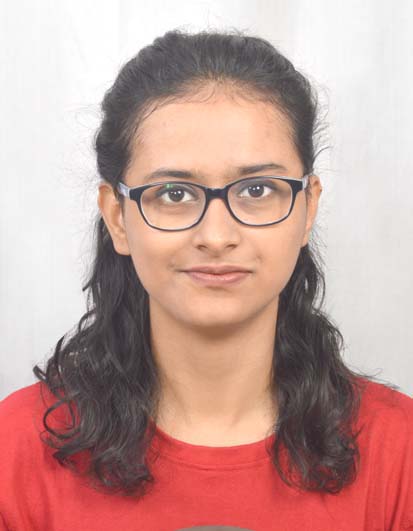
Ankita Sanyal is a doctoral candidate at Centre for West Asian Studies, Jawaharlal Nehru University, New Delhi. She worked as a summer intern at National Human Rights Commission, New Delhi in 2014 and participated in Global Initiative for Academic Networks, lecture on “Jerusalem and Abrahamic Faiths throughout the Ages” (November 2016); ICSSR-sponsored workshop on “Research Methodology Workshop in Social Sciences” (February 2019); and workshop on “Second Intensive Course on Women’s Studies in Islam and Iran” at the University of Religions and Denominations, Qom, Iran (August 2019). She currently has many publications and has presented papers in national and international conferences. She received certificate on completion of Level Two Persian Language course. Her area of interest includes minority studies, gender studies, cultural studies, education, peace and conflict studies.
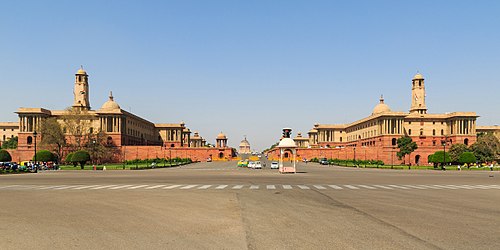
BILATERAL ISSUES BAHRAIN The CEO of LMRA highlights details on the new labour market reforms, .....
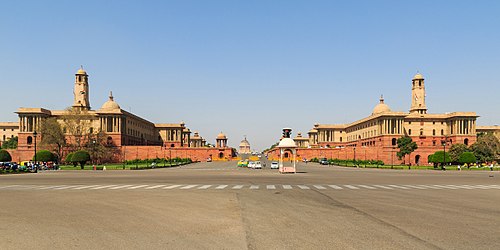
BILATERAL ISSUES EGYPT Raksha Mantri Shri Rajnath Singh to visit Egypt from September 19-20, 2.....
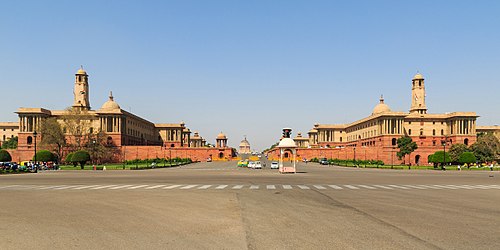
BILATERAL ISSUES IRAN Shri Sarbananda Sonowal visits Chabahar Port in Iran to Review work prog.....
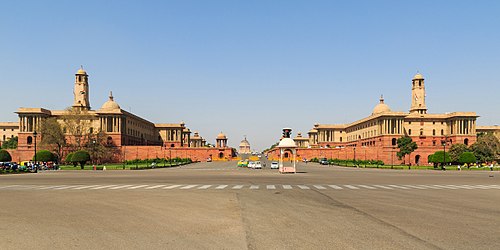
BILATERAL ISSUES BAHRAIN Deputy Chief of Naval Staff, India visits Kingdom of Bahrain, Manama,.....
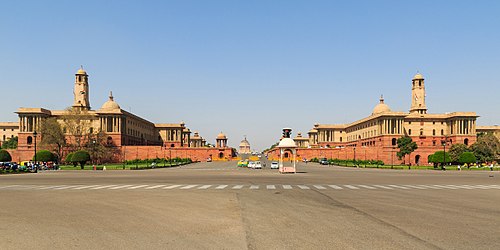
BILATERAL ISSUES BAHRAIN Buyer Seller Meet on Indian coffee between Indian exporters and Bahra.....
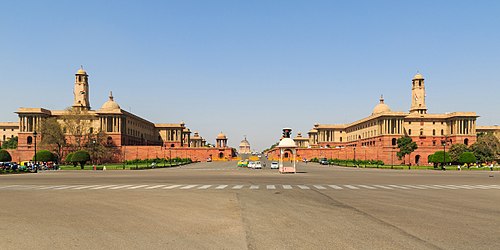
BILATERAL ISSUES BAHRAIN B2B meeting and Networking event between Bahraini & Indian IT com.....
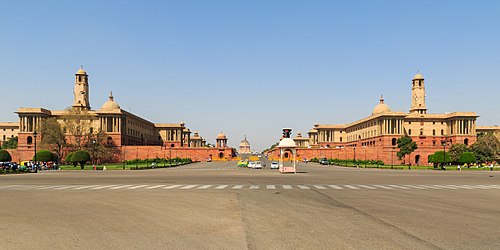
BILATERAL ISSUES OMAN Community Service Fortnight / Sewa Utsav’: ‘Celebration Thro.....
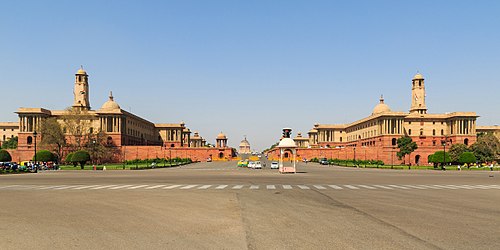
BILATERAL ISSUES BAHRAIN Virtual Buyer Seller Meet on agriculture and food products between In.....
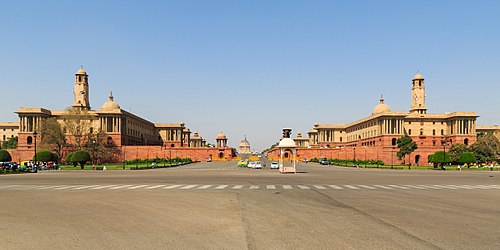
BILATERAL ISSUES BAHRAIN PM speaks on telephone with His Royal Highness Prince Salman bin Hama.....
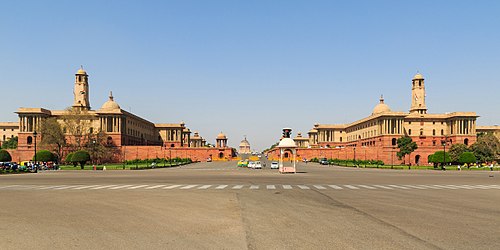
BILATERAL ISSUES ISRAEL Experts from India and Israel suggested expanding scope of India-Israe.....
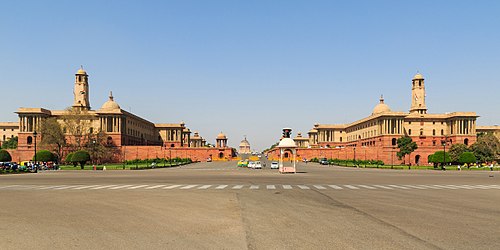
BILATERAL ISSUES BAHRAIN Press Release on virtual meeting between Minister for Education and S.....
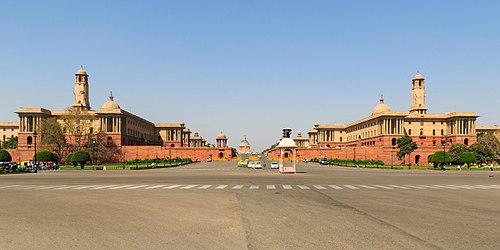
BILATERAL ISSUES BAHRAIN Ambassador’s visit to India Pavilion of Jewellery Arabia, Bahra.....
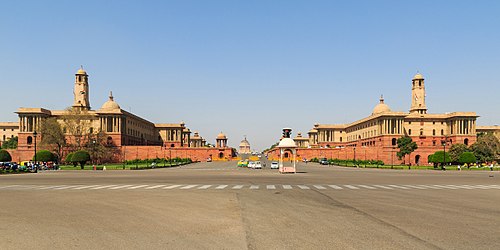
BILATERAL ISSUES BAHRAIN First consignment of GI tagged sweet dish Mihidana from West Bengal e.....
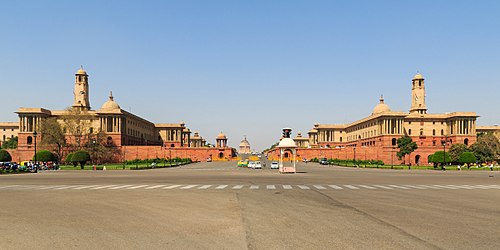
BILATERAL ISSUES ALGERIA Visit of Shri V. Muraleedharan, Minister of State for External Affair.....
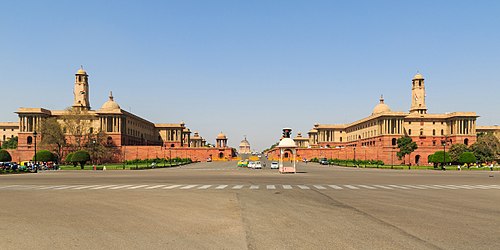
BILATERAL ISSUES ALGERIA INS TABAR undertook a bilateral Passage Exercise (PASSEX) with Algeri.....
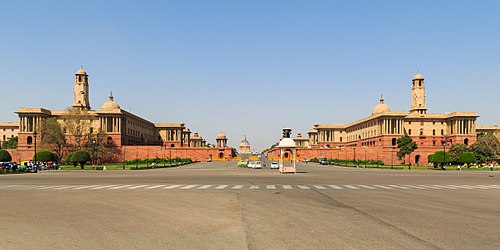
BILATERAL ISSUES BAHRAIN India expands mango export footprint to newer countries; GI certified.....
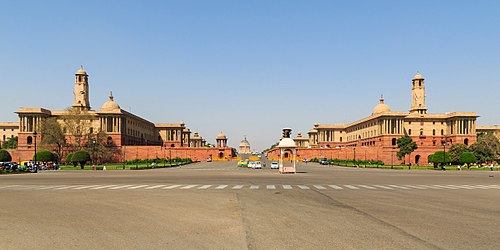
BILATERAL ISSUES ALGERIA APEDA in collaboration with Indian embassy organize virtual buyer sel.....
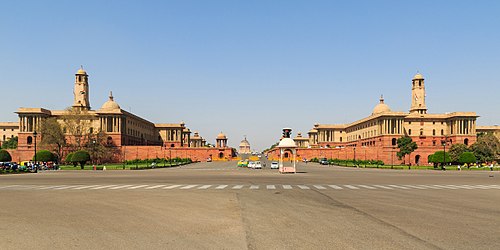
BILATERAL ISSUES EGYPT Procurement of 300,000 doses of Remdesivir from M/s EVA Pharma, Cairo, .....
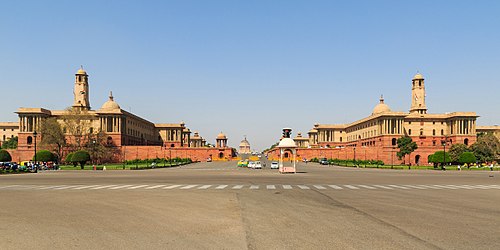
BILATERAL ISSUES BAHRAIN Third India-Bahrain High Joint Commission Meeting, New Delhi, 07 Apri.....
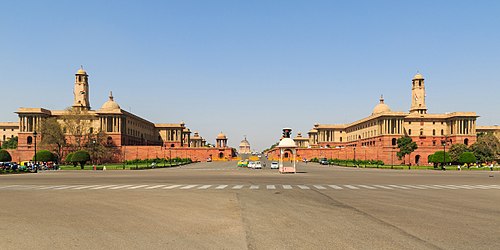
BILATERAL ISSUES BAHRAIN Indian Naval Ship Talwar’s Port Visit to Bahrain, Manama, 18 Ma.....
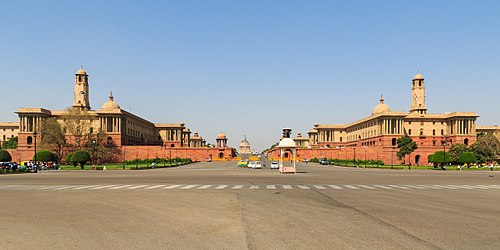
BILATERAL ISSUES IRAN Unstarred Question No.1475, Chabahar-Zaheden Railways Line, Lok Sabha, 1.....
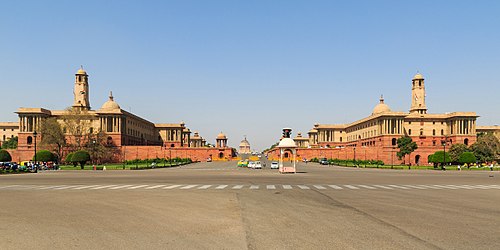
BILATERAL ISSUES BAHRAIN Warm greetings from Indian leadership on the occasion of Bahrain&rsqu.....
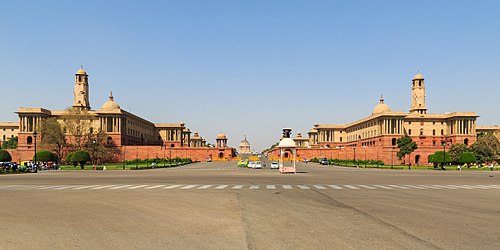
BILATERAL ISSUES BAHRAIN Prime Minister condoles the passing away of His Royal Highness Prince.....
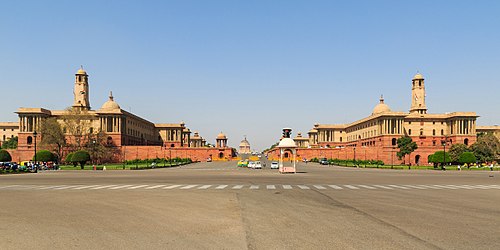
BILATERAL ISSUES BAHRAIN A B2B Webinar on Enhancing Opportunities in Pharmaceuticals and Alter.....
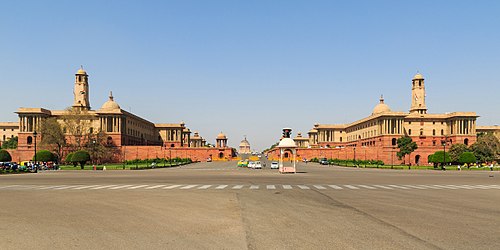
BILATERAL ISSUES IRAN Raksha Mantri Shri Rajnath Singh holds meeting with Iran's Minister .....
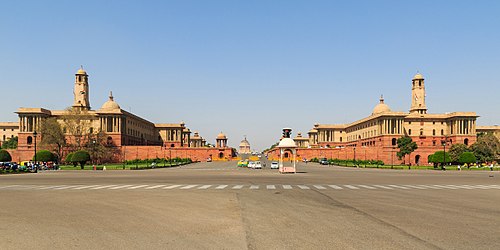
BILATERAL ISSUES ISRAEL Statement by the Official Spokesperson on the full normalisation of re.....
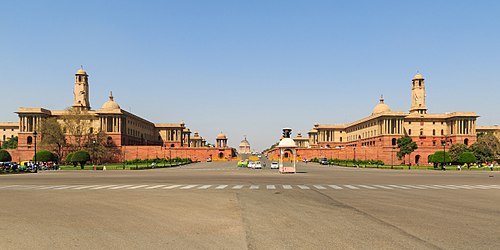
BILATERAL ISSUES ISRAEL Raksha Mantri Shri Rajnath Singh and Israeli Defence Minister telephon.....
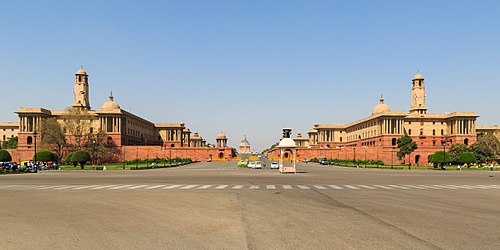
BILATERAL ISSUES IRAN Indian Navy Commences evacuation of citizens from Islamic Republic of Ir.....
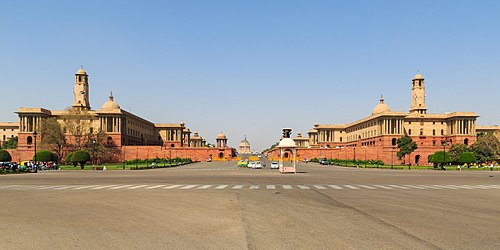
BILATERAL ISSUES EGYPT Phone call between Prime Minister Shri Narendra Modi and His Excellency.....
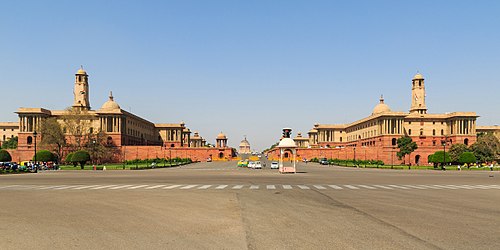
BILATERAL ISSUES BAHRAIN Telephone Conversation between PM and King of the Kingdom of Bahrain,.....
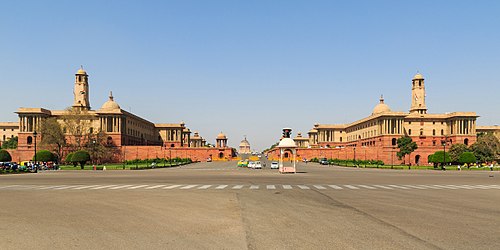
BILATERAL ISSUES IRAN IAF C-17 ‘Globemaster’ takes off for Iran, New Delhi, 9 Marc.....
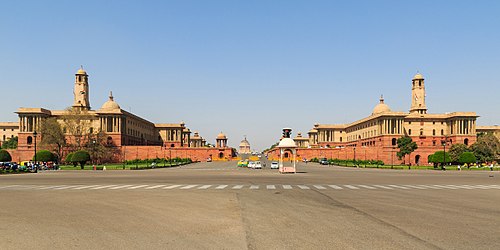
BILATERAL ISSUES IRAQ Travel Advisory for Indian Nationals travelling to Iraq, New Delhi, 19 F.....
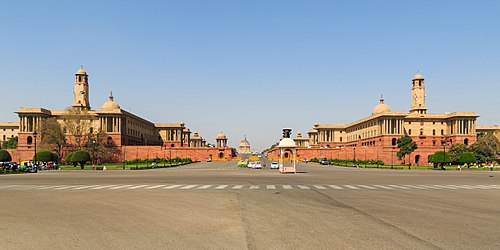
BILATERAL ISSUES EGYPT Photo exhibition on “Making of Indian Constitution and Life of Dr.....
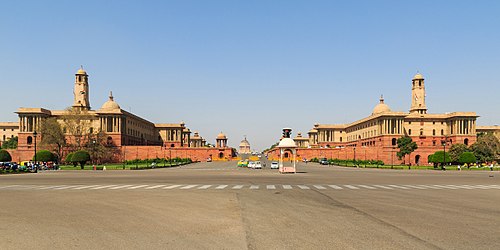
BILATERAL ISSUES EGYPT Prize Distribution Function of “Glimpses of India” Painting.....
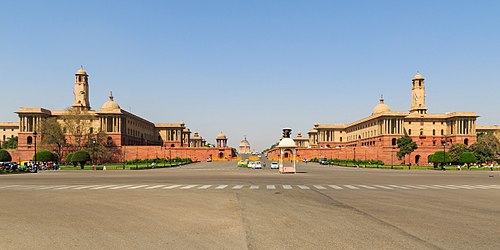
BILATERAL ISSUES EGYPT Consular Camp in Port Said on 22 November 2019, Cairo, 19 November 2019.....
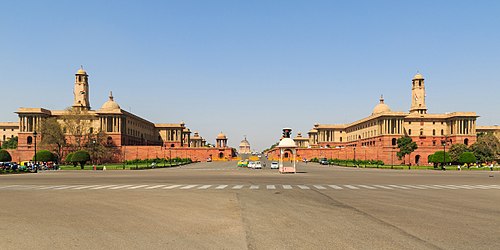
BILATERAL ISSUES JORDAN Meeting between Prime Minister and King of Jordan in Riyadh, Riyadh, 2.....
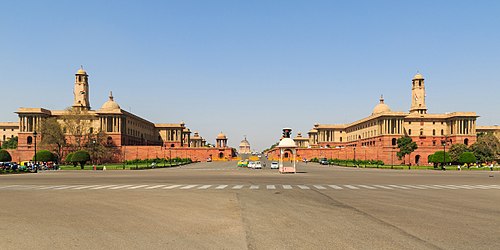
BILATERAL ISSUES a. IRAN Foreign Office Consultations between India and Iran, Tehran, 16 Septe.....
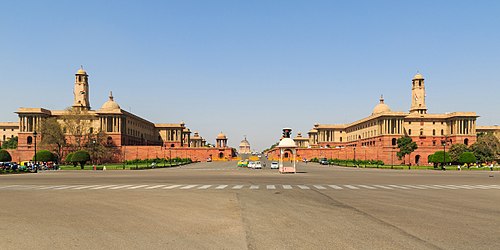
BILATERAL ISSUES a. BAHRAIN State Visits of Prime Minister to Bahrain (August 24-25, 2019), Ne.....
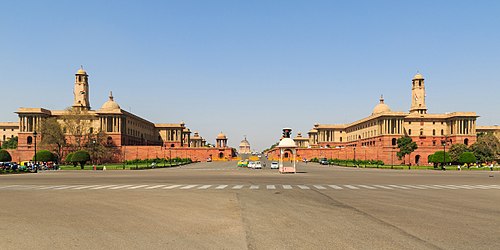
BILATERAL ISSUES BAHRAIN Cabinet approves Memorandum of Understanding between India and B.....
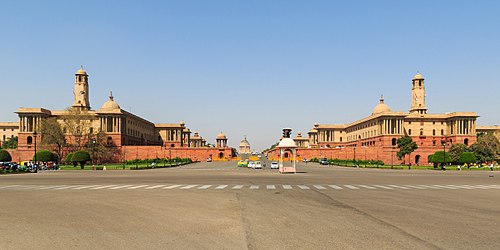
BILATERAL ISSUES IRAN UNSTARRED QUESTION No. 662 MPACT OF AMERICAN BAN ON CHABAHAR PORT, Rajya.....
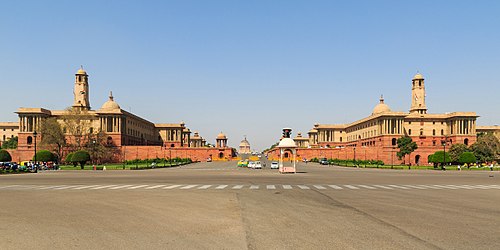
BILATERAL ISSUES IRAN 11th India Iran Joint Consular Committee Meeting (JCCM), New Delhi, 16 M.....
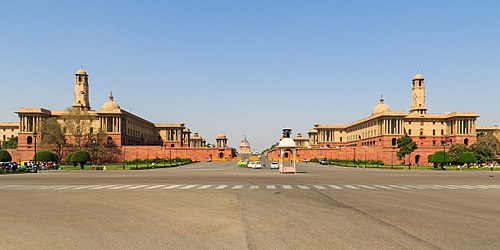
IRAN India extends relief assistance to Iran after recent floods, Tehran, 17 April 2019 In lin.....
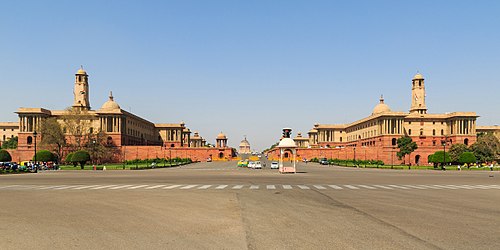
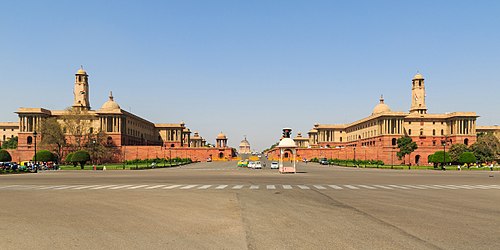
BILATERAL ISSUES EGYPT India condemns terrorist attacks in Egypt, New Delhi, 22 February 2019 .....
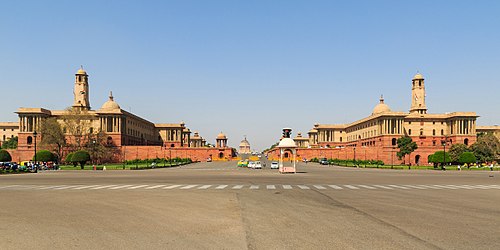
BILATERAL ISSUES ALGERIA Visit of Foreign Minister of Algeria to India (January 30-February 01.....
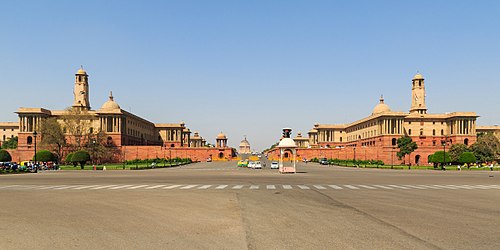
ALGERIA Cabinet approves Agreement between India and Algeria on Cooperation in the field of Space.....
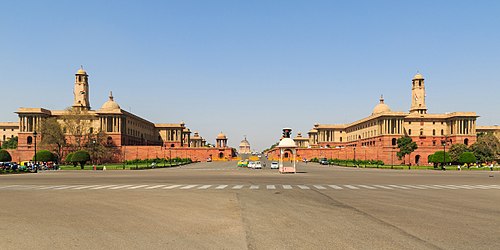
BILATERAL ISSUES IRAQ Jaipur Foot Camp in Karbala, Karbala, 21 November 2018 A 40-day Artif.....
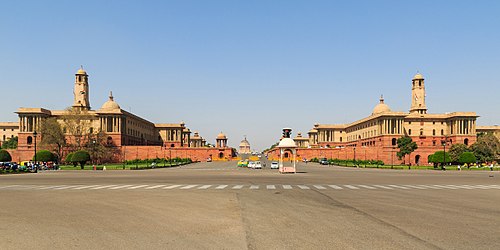
BILATERAL ISSUES KUWAIT Visit of External Affairs Minister to State of Qatar and State of Kuwa.....
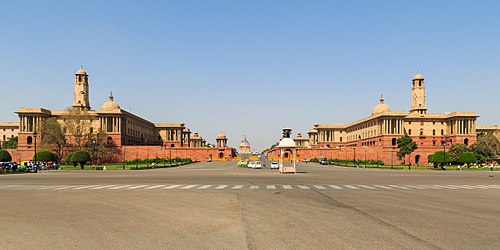
BILATERAL ISSUES EGYPT Cabinet approves MoU between India and Egypt on cooperation in the fiel.....
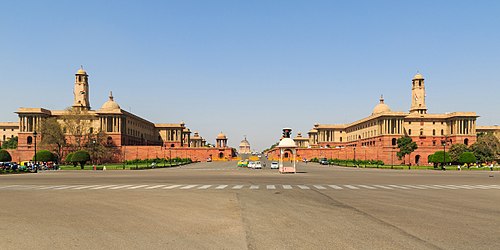
BILATERAL ISSUES BAHRAIN Question No. 3566, Unpaid Workers in Bahrain, Lok Sabha, New Delhi, 0.....
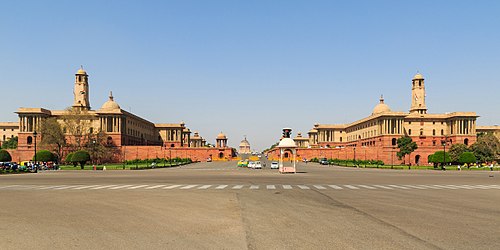
BILATERAL ISSUES BAHRAIN Visit of External Affairs Minister to Manama, Bahrain (July 14-15, 20.....
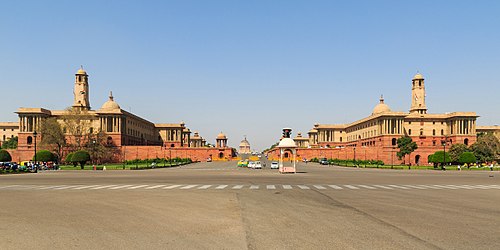
BILATERAL ISSUES BAHRAIN Cabinet approves MoU between India and Bahrain on cooperation in the .....
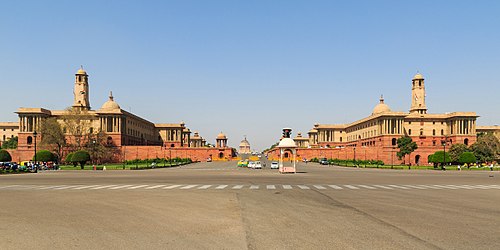
BILATERAL ISSUES IRAN External Affairs Minister’s meeting with Iranian Foreign Minister,.....
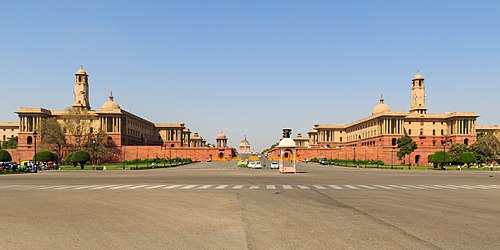
BILATERAL ISSUES IRAN Cabinet approves MoU between India and Iran on the establishment of an e.....
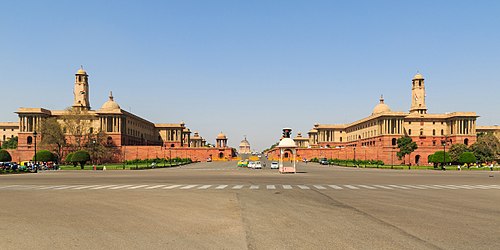
(Monthly Digest of Official Indian Statements on Middle East) BILATERAL ISSUES EGYPT Mr. Sa.....
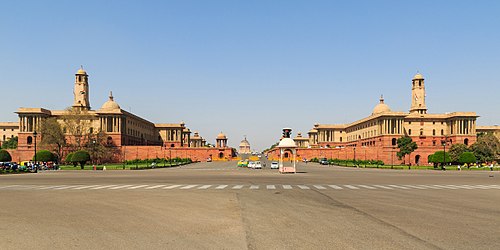
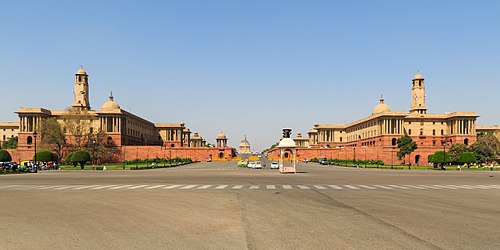
(Monthly Digest of Official Indian Statements on Middle East) BILATERAL ISSUES IRAN Launch .....
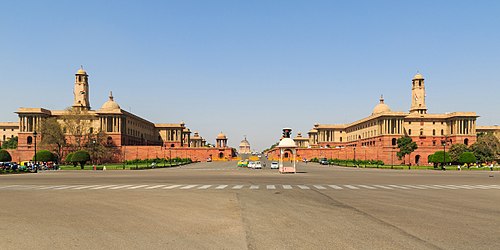
(Monthly Digest of Official Indian Statements on Middle East) BILATERAL ISSUES &.....
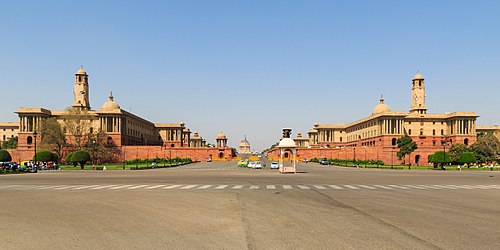
BILATERAL ISSUES a. EGYPT 1. H.E. Col. Rajyavardhan Singh Rathore, Minister of State for Youth.....
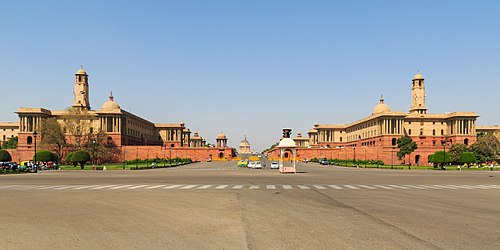
BILATERAL ISSUES a. IRAQ 1. India’s position on the Referendum held in the Kurdistan Reg.....
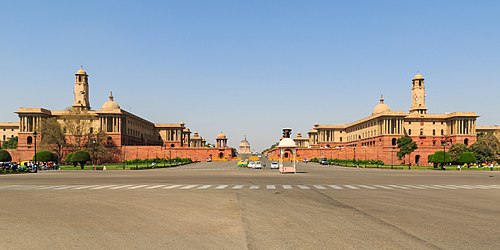
BILATERAL ISSUES IRAN 1. 6th Meeting of Joint Committee on Ports and Maritime Cooperation.....
